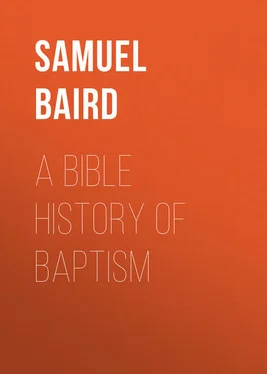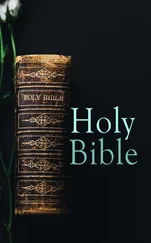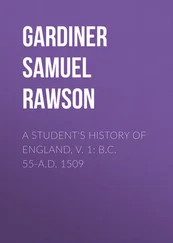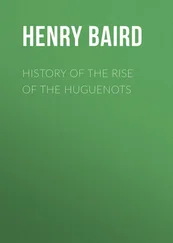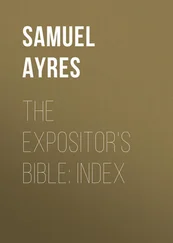Samuel Baird - A Bible History of Baptism
Здесь есть возможность читать онлайн «Samuel Baird - A Bible History of Baptism» — ознакомительный отрывок электронной книги совершенно бесплатно, а после прочтения отрывка купить полную версию. В некоторых случаях можно слушать аудио, скачать через торрент в формате fb2 и присутствует краткое содержание. Жанр: foreign_antique, foreign_prose, на английском языке. Описание произведения, (предисловие) а так же отзывы посетителей доступны на портале библиотеки ЛибКат.
- Название:A Bible History of Baptism
- Автор:
- Жанр:
- Год:неизвестен
- ISBN:нет данных
- Рейтинг книги:5 / 5. Голосов: 1
-
Избранное:Добавить в избранное
- Отзывы:
-
Ваша оценка:
- 100
- 1
- 2
- 3
- 4
- 5
A Bible History of Baptism: краткое содержание, описание и аннотация
Предлагаем к чтению аннотацию, описание, краткое содержание или предисловие (зависит от того, что написал сам автор книги «A Bible History of Baptism»). Если вы не нашли необходимую информацию о книге — напишите в комментариях, мы постараемся отыскать её.
A Bible History of Baptism — читать онлайн ознакомительный отрывок
Ниже представлен текст книги, разбитый по страницам. Система сохранения места последней прочитанной страницы, позволяет с удобством читать онлайн бесплатно книгу «A Bible History of Baptism», без необходимости каждый раз заново искать на чём Вы остановились. Поставьте закладку, и сможете в любой момент перейти на страницу, на которой закончили чтение.
Интервал:
Закладка:
At length, the four hundred years were past. The probation of the apostate nations was finished. The iniquity of the Amorites was full. God remembered his covenant with Abraham, and sent Moses into Egypt, saying to him: “I am Jehovah. And I appeared unto Abraham, unto Isaac, and unto Jacob, by the name of God Almighty; but by my name, Jehovah, was I not known to them. And I have also established my covenant with them, to give them the land of Canaan, the land of their pilgrimage, wherein they were strangers. And I have also heard the groaning of the children of Israel, whom the Egyptians keep in bondage, and I have remembered my covenant. Wherefore, say unto the children of Israel, I am the Lord, and I will bring you out from under the burdens of the Egyptians, and I will rid you out of their bondage, and I will redeem you with a stretched out arm and with great judgments; and I will take you to me for a people, and I will be to you a God; and ye shall know that I am the Lord your God, which bringeth you out from under the burdens of the Egyptians. And I will bring you in unto the land, concerning which I did swear to give it to Abraham, to Isaac, and to Jacob.” – Ex. vi, 2-8. In this initial communication we have the key to the Sinai covenant, and to all God’s subsequent dealings with Israel. In it three things are specially observable. (1.) The Abrahamic covenant is designated, “my covenant,” in accordance with what we have already seen as to the nature of that covenant, as exclusive and everlasting. (2.) Its scope is stated in those all-embracing terms, “I will take you to me for a people, and I will be to you a God.” (3.) The possession of the earthly Canaan is specified as a minor particular, under this comprehensive pledge.
With all this the Sinai covenant was in accord. Its conditional terms we have seen, as propounded through Moses. “Thus shalt thou say to the house of Jacob, and tell the children of Israel: Ye have seen what I did to the Egyptians, and how I bare you on eagles’ wings, and brought you unto myself. Now, therefore, if ye will obey my voice indeed, and keep my covenant .” – Ex. xix, 3-5. The “voice” which they were to obey they heard on the next day, when God spake to them the words of the law, from the midst of the smoke and flame. Of it Moses afterward reminded the people: “Ye came near and stood under the mountain; and the mountain burned with fire unto the midst of heaven, with darkness, clouds, and thick darkness. And the Lord spake unto you out of the midst of the fire: ye heard the voice of the words, but saw no similitude, only a voice. And he declared unto you his covenant which he commanded you to perform, even ten commandments; and he wrote them upon two tables of stone.” – Deut. iv, 11-13. Very great emphasis attaches to the Ten Commandments, in their relation as thus the fundamental law of the covenant. The first overture having been addressed to Israel, in the terms, “If ye will obey my voice,” and by them accepted, the next day that voice was heard uttering those commandments. Again the people are called upon, and again respond in pledge of obedience. Moses then wrote in “the book of the covenant” all these words of the Lord, and read them in the audience of the people. And it was not till again they promised obedience to the terms thus set before them that the covenant was ratified, as we have seen. The Ten Commandments were then, by the finger of God, engraved on the two tables of stone, which were thence known as “the tables of the covenant.” These were placed in “the ark of the covenant,” which was in the holy of holies, in “the tabernacle of the covenant.” Both of these derived their names and significance from these tables, which were the very center of the whole system of religion and worship connected with the tabernacle. The lid of the ark which covered these tables was the golden mercy-seat, with its cherubim of gold, between which stood the pillar of glory, the Shechinah, overshadowing the mercy-seat. It thus typified God’s throne of grace immovably based upon the firm foundation of his eternal law – mercy to man only possible on condition of satisfaction to that law. Therefore, when remembrance of sins was made every year (Heb. x, 3), it was by the sprinkling of blood upon the mercy-seat and the ark of the covenant. (Ib. ix, 7.) A proper regard to the fact that the moral law was thus the fundamental condition of the covenant, while the ritual law was no part of it, but a later system of testimony, would have prevented much perplexing and erroneous speculation on the subject.
But the covenant had a second condition, “If ye will keep my covenant .” This second clause is implied in the first. But it is none the less important and significant, as being a categorical statement of the nature of the obedience required. We have already pointed out the fact that by “ my covenant ” was meant the covenant with Abraham, so interpreted by God himself in his first communication to Israel in Egypt. The covenant thus defined had but one condition and two promises. The promises were, to bring them out of the bondage of Egypt and give them the land of Canaan, and to be to them a God. The condition was, that Israel, in turn, would surrender themselves to be for a people to God. (Ex. vi, 7.) This condition is the only thing that can be meant by the phrase, “If ye will keep my covenant.” It was the only duty laid upon them by that covenant. We thus find the two fundamental conditions of the Sinai covenant to have been in the terms, “If ye will obey my voice indeed” – the voice that spake in the Ten Commandments – and, “If ye will keep my covenant,” to be a willing people unto me, and cleave to me as your God. Such was the foundation-stone on which the church was built.
Section IX. — The Promises of the Sinai Covenant
As were the conditions of the covenant, so were its promises altogether and eminently spiritual.
1. “Ye shall be unto me a peculiar treasure above all people; for all the earth is mine.” A treasure is a property, valuable, highly prized, and cherished. It is riches to the owner; his enjoyments largely depend thereon; and over it he therefore exercises a watchful guardianship. Such was the relation which, by the covenant, God conferred on Israel. The expression is strengthened by the qualifying adjective, “peculiar,” which means, special and exclusive. “My own special treasure.” What was thus implied may be gathered from a single Scripture. Says the Lord, by Malachi: “Then they that feared the Lord spake often one to another, and the Lord hearkened and heard it, and a book of remembrance was written before him for them that feared the Lord, and that thought upon his name. And they shall be mine, saith the Lord of hosts, in that day when I make up my jewels” (“my peculiar treasures.” The word in the original is the same), “and I will spare them, as a man spareth his own son that serveth him. Then shall ye return and discern between the righteous and the wicked; between him that serveth God, and him that serveth him not.” – Mal. iii. 16-18. By this clause, Israel became the object of God’s assiduous watchfulness and constant care as his own peculiar treasure of price.
2. The parenthetic clause, “For all the earth is mine,” is of singular interest. The covenant with Abraham conveyed the assurance that in him should “all the families of the earth be blessed.” The clause inserted in the Sinai overture was a reminder to Israel of that fact, to certify them and the world that the purpose concerning the latter was unchanged, that the peculiar relation now assumed toward Israel was not incongruous to it; that, on the contrary, whilst Israel was first, it was not alone in the obligations and promises of the covenant. “All the earth is mine;” and the claim which, in such a transaction, God thus makes he will surely vindicate, in his own good time, by taking his own to himself, bringing them, also, within the pale of his covenant, and gathering from them a revenue of praise and glory.
Читать дальшеИнтервал:
Закладка:
Похожие книги на «A Bible History of Baptism»
Представляем Вашему вниманию похожие книги на «A Bible History of Baptism» списком для выбора. Мы отобрали схожую по названию и смыслу литературу в надежде предоставить читателям больше вариантов отыскать новые, интересные, ещё непрочитанные произведения.
Обсуждение, отзывы о книге «A Bible History of Baptism» и просто собственные мнения читателей. Оставьте ваши комментарии, напишите, что Вы думаете о произведении, его смысле или главных героях. Укажите что конкретно понравилось, а что нет, и почему Вы так считаете.
